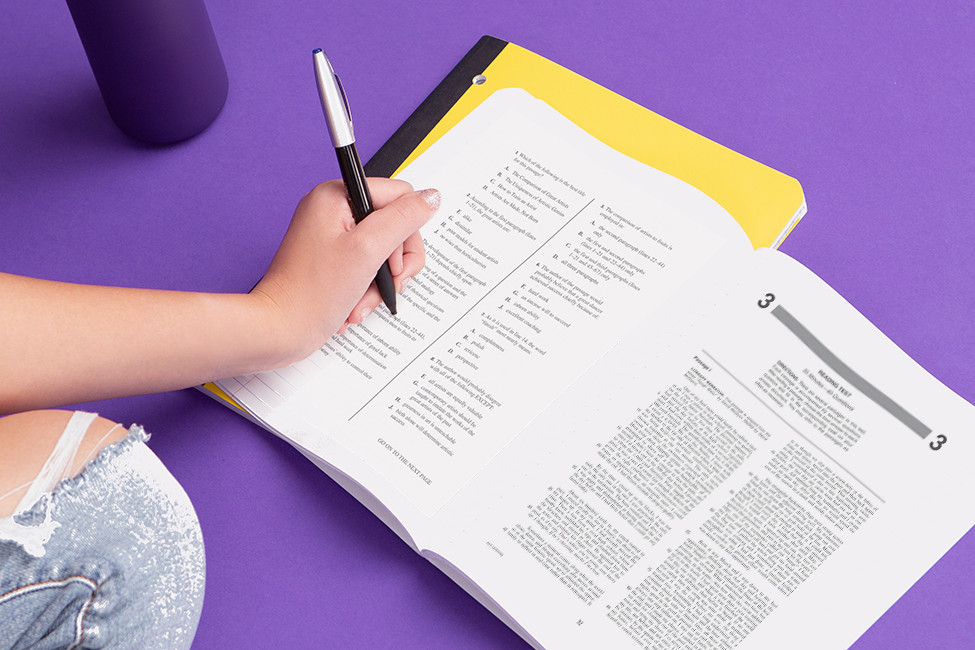Acing the ACT

The ACT — the standardized test recognized as one of the most important factors in the college admissions process— was widely canceled this spring due to pandemic safety measures. Does this signal a major change in admissions? Well, maybe. We took a deep dive with education experts Bryan Redditt of Huntington Learning Center and Charlotte Foster of Sylvan Learning Center into the evolving world of the ACT.
Why the ACT
Foster notes that a transition away from entrance exams was already in the works for some higher education institutions before the pandemic. But Redditt doesn’t suggest skipping the test just yet. “Although many schools are going test-optional because of COVID, having a good ACT score will only increase college options and scholarship opportunities. You must take the ACT for merit-based scholarships!”
Instead of foregoing the test altogether, it’s time to study up. “It is important for parents and students to research, together, at least three colleges/universities and find out what the requirements are, then start working toward those,” said Foster.
When to Start
As a rule of thumb, the 11th grade is the time to start formal test prep. But that’s not a hard-and-fast standard. “We have students who come in 10th or 12th grade,” said Redditt. “I recommend giving yourself at least three months to start seriously preparing for the ACT, regardless of what your score goals may be.”
Foster recommends starting even earlier. “Junior high is a great time to begin preparing for the ACT. Pre-algebra is a must for gaining a solid algebra foundation. Much of the ACT is algebra and that is a real hurdle for students who just passed through pre-algebra class.”
How to Beat Test Anxiety
There’s no easy way to beat test anxiety, but there are some helpful methods. “What is important is that students see an ACT before they take the actual test for the first time. I liken it to ‘exposure therapy;’ if you are terrified of this big scary test you should see what all the fuss is about before you let anxiety take hold,” said Redditt.
How Many Times
Both experts recommended taking the ACT multiple times. “The idea of taking the test once and hitting it out of the park sounds great, but the reality is that does not always happen. Even if it does, why not take it a second time and see if you can improve your score? Students should plan on taking it twice and revise that plan according to how well they do when they receive their scores,” said Redditt.
When to Call in the Pros
“If a student has taken the ACT twice and not scored well, they should seek out help from a tutoring center before trying again,” said Foster.

ACT in the Pandemic: Double Check your Test Session
Along with researching your dream schools’ modified ACT requirements, you should also do some homework the day of the test.
“Always double and triple check that the test is still being offered on the day you're scheduled. Many times, tests are canceled at the last minute due to COVID,” said Foster.
Test-Day Tips
Redditt offered tips and strategies to help students on test day.
• Replace the batteries in your calculator.
• Know where you are going and give yourself plenty of time to get there. You do not want to be in a panic before your big test.
• Get a good night’s sleep and do not stay up late cramming.
• Wake up early and eat a good breakfast. Also, engage your mind by reading or working some math problems.
• Bring a calculator, snack/water and your lucky pencils.
Test Taking Strategies
• Learn how to tune out distractions.
• Work on pacing and understanding what the test expects from students.
• Always read the directions, but be familiar with them before test day.
• Read questions carefully.
• Practice stress management.


